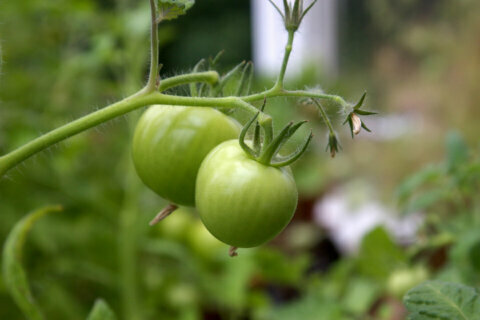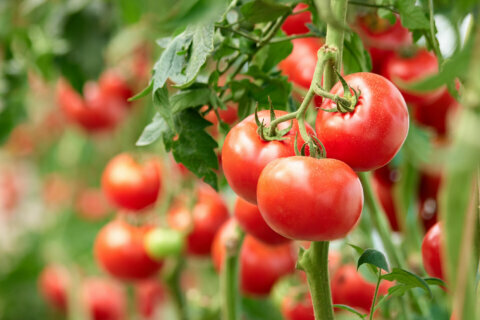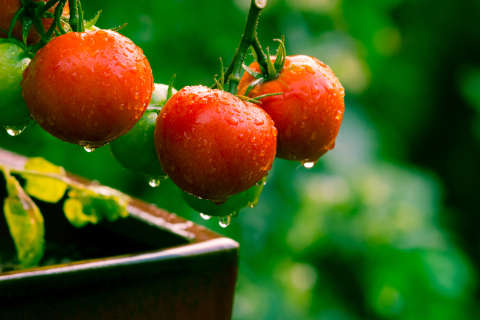Meet mike this month!
Saturday, Feb. 22: Green Spring Gardens EcoSavvy Symposium, Greensprings Gardens in Alexandria, Va. Mike will speak at 10:30 a.m. More info: http://www.fairfa xcounty.gov/parks.
Sunday, Feb. 23: Capital Home & Garden Show at the Dulles Expo Center in Chantilly. Mike will appear at noon and 2 p.m. Details: capitalhomea ndgardenshow.com.
Corn gluten beats crabgrass, if your timing is right
Doug in Fredericksburg writes: “This year I am turning over a new leaf and taking your advice to use corn gluten meal on my lawn instead of chemicals as a pre- emergent weed and feed. When is the best time to apply the corn gluten to my lawn?”
It’s a moving target, Doug. The aim is to apply the corn gluten about a week before dormant crabgrass seeds begin to germinate, which occurs when the soil temperature reaches 55 degrees (as measured 4 inches deep).
Typically, this is when forsythia and redbuds begin to bloom in our region. It’s also when the water in the nearby Chesapeake approaches that same temperature. Last year, this perfect window opened the first week of April, but this year’s wretched winter weather will likely change that.
So keep your gluten dry and safe from mice, and keep listening to WTOP. I’ll try and give you a good two-week warning.
Does a hard winter bring fewer summer pests?
Joe in Hagerstown has an intriguing question. He writes: “Does our recent stretch of zero temperatures and snow cover mean fewer insect pests this summer?”
Double good news, Joe.
Constant snow cover is excellent for the health of our landscape plants. They do much better under that layer of natural insulation than if they had been exposed to freezing cold without snow. So they will be better able to resist insect attack naturally this season.
And yes, some invasive insects are expected to suffer severe setbacks from the prolonged cold weather, especially the wooly adelgid, which has been decimating area hemlock trees. The adelgid (a white, fuzzy sap-sucking aphid) depends on warm winters to survive, while hemlocks are invigorated by cold ones. So that’s a double whammy for the good guys!
The cold weather is also going to make life hard for mosquitoes, as the last generation of the season overwinters in the adult stage waiting for warm weather to resume. The harsher the winter, the fewer survivors.
I knew there had to be something good about these single digits!
Magnolia in bondage (no, not a bad romance novel)
Mike and Charlene in Woodbridge write: “HELP! We planted a magnolia tree and staked it on two sides. About two months ago, the center branch snapped due to the weather. Do we have to start over and stake it right? And how will the remaining branches bloom?”
Well, they should eventually bloom with magnolia flowers unless somebody switched the tags on you, Mike and Charlene. (Be patient. It takes a few seasons for the plants to achieve flowering size.)
But it sounds like you’ve already gone far enough — and perhaps too far — with the staking. So no more arboreal bondage. Nature doesn’t stake trees, and I feel strongly that we shouldn’t either. I suggest you remove the existing restraints, rake back any mulch that might be touching the trunk and let the tree recover via Tincture of Time.
There’s a trick to picking the right Feb. 14 orchid
John in D.C. claims I have made an error! Gasp!
He writes: “Last year on







